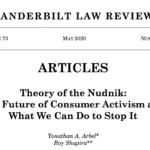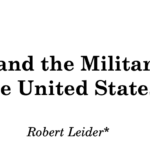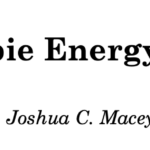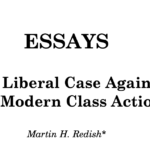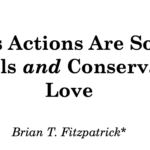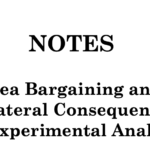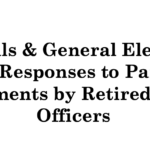Volume 73, Number 4 Category
Theory of the Nudnik: The Future of Consumer Activism and What We Can Do to Stop It
May. 26, 2020—Yonathan A. Arbel & Roy Shapira | 73 Vand. L. Rev. 929 (2020) | How do consumers hold sellers accountable and enforce market norms? This Article contributes to our understanding of consumer markets in three ways. First, the Article identifies the role of a small subset of consumers—the titular “nudniks”—as engines of market discipline. Nudniks...
Federalism and the Military Power of the United States
May. 26, 2020—Robert Leider | 73 Vand. L. Rev. 989 (2020) | This Article examines the original meaning of the constitutional provisions governing the raising and organization of military forces. It argues that the Framers carefully divided the military between the federal and state governments. This division provided structural checks against the misuse of military power and...
Zombie Energy Laws
May. 26, 2020—Joshua C. Macey | 73 Vand. L. Rev. 1077 (2020) | This Article traces the development of three legal rules—cost recovery for vertically integrated utilities, the requirement that regulators assess the financial viability of energy projects before issuing a certificate of public convenience and necessity, and the filed rate doctrine—that emerged out of the view...
The Liberal Case Against the Modern Class Action
May. 26, 2020—Martin H. Redish | 73 Vand. L. Rev. 1127 (2020) | Those who classify themselves as liberal generally favor widespread use of class actions as a means of policing corporate misbehavior and protecting the individual worker or consumer against capitalist excesses. In this Essay, however, I take the counterintuitive position that while class action practice...
Why Class Actions Are Something both Liberals and Conservatives Can Love
May. 26, 2020—Brian T. Fitzpatrick | 73 Vand. L. Rev. 1147 (2020) | In Professor Redish’s review of my new book, The Conservative Case for Class Actions, he argues that liberals should oppose the class action because the cy pres doctrine used to distribute settlement money is democratically illegitimate and that conservatives should oppose it because it...
Plea Bargaining and Collateral Consequences: An Experimental Analysis
May. 26, 2020—Carlie Malone | 73 Vand. L. Rev. 1161 (2020) | The overwhelming majority of convictions in the United States are obtained through guilty pleas. Many of these guilty pleas are a product of plea bargaining, where a defendant enters a guilty plea in exchange for some form of official concessions. Despite its prominence, plea bargaining...
Generals & General Elections: Legal Responses to Partisan Endorsements by Retired Military Officers
May. 26, 2020—Hannah Martins Miller | 73 Vand. L. Rev. 1209 (2020) | Retired generals and admirals of the U.S. military appear to be endorsing partisan political candidates in greater numbers, with more visibility. This Note argues that the practice represents a clear danger to civilian control over the military and weakens military effectiveness. It explains that while...
